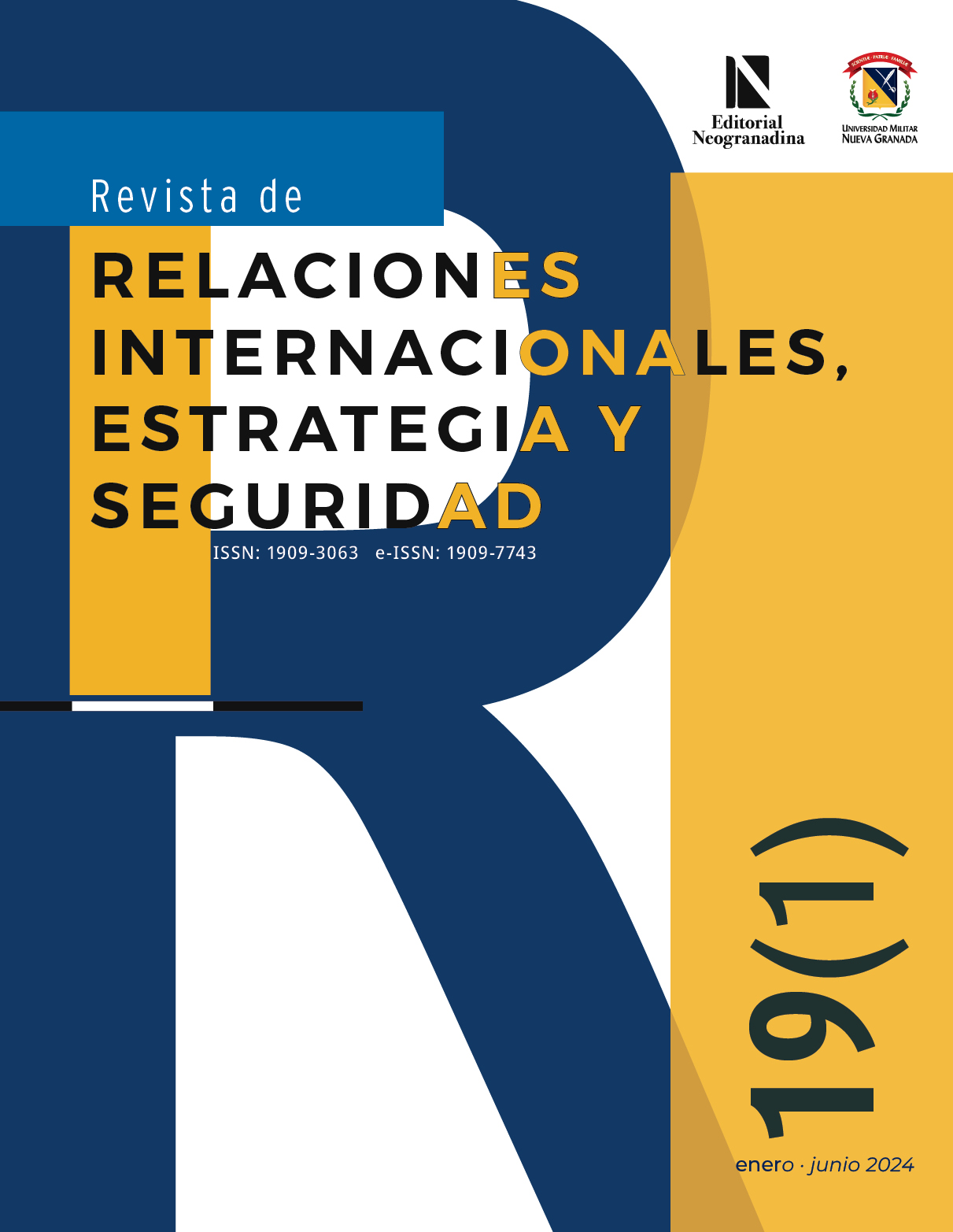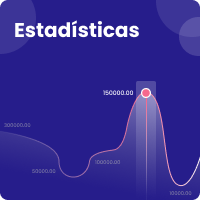Maritime Transportation and its Impact on Sustainability: A Review of the Literature
Abstract
This research aims to analyze the literature review on maritime transportation (MT) and its impact on sustainability, to minimize the emissions of toxic gases in Latin America. To achieve this, the Scopus database was chosen to search for scientific production registered in the last 20 years, using bibliometric tools, and with the support of Rstudio software, the network analysis of the discipline was constructed. The research type is quantitative and the current knowledge structure of the topic is presented through two stages, presenting the countries, journals, authors, and the most significant production; subsequently, three clusters or research perspectives that will be trends in the discipline are identified, such as energy efficiency and environmental sustainability, technologies under development for the decarbonization of MT, and finally, the environmental impact of Greenhouse Gas Emissions (GHG) in a sustainable future. The results affirm the relevance of MT for international trade, leaving a significant mark on sustainability and the environment. It is concluded that the implementation of cleaner propulsion technologies, the use of more sustainable fuels, and the improvement of energy efficiency of ships keep the mt industry responsible for a large amount of emissions of toxic gases, such as CO2, NO2, and S, which contribute to climate change and air pollution.
Downloads
References
Altarriba, E., Rahiala, S., Tanhuanpää, T. y Piispa, M. (2022). Developing sustainable shipping and maritime transport: Multi-criteria analysis between emission abatement methods. In Sustainable Development and Innovations in Marine Technologies (pp. 77-84). CRC Press. https://doi.org/10.1201/9781003358961-11
Ampah, J. D., Yusuf, A. A., Afrane, S., Jin, C. y Liu, H. (2021). Reviewing two decades of cleaner alternative marine fuels: Towards imo’s decarbonization of the maritime transport sector. Journal of Cleaner Production, 320, 12 p. https://doi.org/10.1016/j.jclepro.2021.128871
Aps, R., Fetissov, M., Goerlandt, F., Helferich, J., Kopti, M. y Kujala, P. (2015). Towards stamp Based Dynamic
Safety Management of Eco-Socio-Technical Maritime Transport System. Procedia Engineering, 128, 64-73. https://doi.org/10.1016/j.proeng.2015.11.505
Aria, M. y Cuccurullo, C. (2017). Bibliometrix: An R-tool for comprehensive science mapping analysis. Journal of Informetrics, 11(4), 959-975. https://doi.org/10.1016/j.joi.2017.08.007
Arof, A. M. (2015). The application of a combined Delphi-ahp method in maritime transport research-a review. Asian Social Science, 11(23), p. 73. https://doi.org/10.5539/ass.v11n23p73
Arvidsson, A. y Caliandro, A. (2015). Brand Public. The Journal of Consumer Research, 42(5), 727-748. https://doi.org/10.1093/jcr/ucv053
Bagoulla, C. y Guillotreau, P. (2020). Maritime transport in the French economy and its impact on air pollution: An input-output analysis. Marine Policy, 116, 8 p. https://doi.org/10.1016/j.marpol.2020.103818
Bălan, C. (2018). The disruptive impact of future advanced icts on maritime transport: a systematic review. Supply
Chain Management. An International Journal, 25(2), 157-175. https://doi.org/10.1108/SCM-03-2018-0133
Barberi, S., Campisi, T. y Neduzha, L. (2022). The role of cold ironing in maritime transport emissions. International conference of computational methods in sciences and engineering (iccmse, 2021). https://doi.org/10.1063/5.0119881
Benamara, H., Hoffmann, J. y Youssef, F. (2019). Maritime Transport: The Sustainability Imperative. In H. N. Psaraftis (Ed.), Sustainable Shipping: A Cross-Disciplinary View (pp. 1-31). Springer International Publishing. https://doi.org/10.1007/978-3-030-04330-8_1
Bistrovic, N. y Bernecic, D. (2017). Energy efficiency in maritime transport. met: Towards Sustainable, Green and integrated maritime Transport, iamu, p. 47.
Bond, M., Zawacki-Richter, O. y Nichols, M. (2019). Revisiting five decades of educational technology research: A content and authorship analysis of the British Journal of Educational Technology. Journal of the Council for Educational Technology, 50(1), 12-63. https://doi.org/10.1111/bjet.12730
Bosich, D., Vicenzutti, A. y Sulligoi, G. (2020). Environment-friendliness in Maritime Transport: Designing Smart Recharging Stations in North Adriatic Sea. 2020 Fifteenth International Conference on Ecological Vehicles and Renewable Energies (ever), 1-5. https://doi.org/10.1109/EVER48776.2020.9243138
Buermann, J., Georgiev, D., Gerding, E. H., Hill, L., Malik, O., Pop, A., Pun, M., Ramchurn, S. D., Salisbury, E. y Stojanovic, I. (2022). An Agent-Based Simulator for Maritime Transport Decarbonisation. Proceedings of the 21st International Conference on Autonomous
Agents and Multiagent Systems, 1890-1892.
Burel, F., Taccani, R. y Zuliani, N. (2013). Improving sustainability of maritime transport through utilization of Liquefied Natural Gas (lng) for propulsion. Energy, 57, 412-420. https://doi.org/10.1016/j.energy.2013.05.002
Cheng, M. (2016). Sharing economy: A review and agenda for future research. International Journal of Hospitality Management, 57, 60-70. https://doi.org/10.1016/j.ijhm.2016.06.003
Cortez, L., Franco, T. T., Valença, G. y Rosillo-Calle, F. (2021). Perspective Use of Fast Pyrolysis Bio-Oil (fpbo) in Maritime Transport: The Case of Brazil. Energies, 14(16), 47-79. https://doi.org/10.3390/en14164779
Czermański, E., Pawłowska, B., Oniszczuk-Jastrząbek, A. y Cirella, G. T. (2020). Decarbonization of Maritime Transport: Analysis of External Costs. Frontiers in Energy Research, 8. https://doi.org/10.3389/fenrg.2020.00028
Demiroz, F. y Haase, T. W. (2019). The concept of resilience: a bibliometric analysis of the emergency and disaster management literature. Local Government Studies, 45(3), 308-327. https://doi.org/10.1080/03003930.2018.1541796
Duru, O., Lee, J. L. S. y Tei, A. (2018). Special issue iame 2017 conference Maritime Transport Quality
in the Evolving World Trade. International Journal of Transport Economics, 3, p. 364. https://doi.org/10.19272/201806703001
Fahimnia, B., Sarkis, J. y Davarzani, H. (2015). Green supply chain management: A review and bibliometric analysis. International Journal of Production Economics, 162, 101-114. https://doi.org/10.1016/j.ijpe.2015.01.003
Farkas, A., Degiuli, N., Martić, I. y Vujanović, M. (2021). Greenhouse gas emissions reduction potential by using antifouling coatings in a maritime transport industry. Journal of Cleaner Production, 295, pp. 145-156. https://doi.org/10.1016/j.jclepro.2021.126428
Giannopoulos, G. A. y Aifandopoulou-klimis, G. (2004). Inland Maritime Transport in Greece after the Lifting of the Cabotage and Full Liberalization: A Review. Part 1: The Situation “before” and Expected Impacts. Transport Reviews, 24(4), 465-483. https://doi.org/10.1080/0144164042000181699
Gil-Lopez, T. y Verdú-Vázquez, A. (2021). Environmental Analysis of the Use of Liquefied Natural Gas in Maritime Transport within the Port Environment. Sustainability: Science Practice and Policy, 13(21), 1-14. https://doi.org/10.3390/su132111989
Giuffrida, N., Twrdy, E. y Ignaccolo, M. (2023). Special issue on improving the environmental performances of maritime transport and ports. apps. Applied Sciences, 13(3), 17-30. https://doi.org/10.3390/app13031730
Gracia, L. (2014, September 11). ¿Qué es Gephi? Un poco de Java. https://unpocodejava.com/2014/09/11/que-es-gephi/
Groppi, D., Nastasi, B. y Prina, M. G. (2022). The eplan optmac model to plan the decarbonisation of the maritime transport sector of a small island. Energy, 254, 124-342. https://doi.org/10.1016/j.energy.2022.124342
Gu, B. y Liu, J. (2023). A systematic review of resilience in the maritime transport. International Journal of Logistics Research and Applications, 1-22. https://doi.org/10.1080/13675567.2023.2165051
Guerrero, M. I. y Ramírez, Y. M. (2022). Mapeo científico de la cadena de suministro y aplicación tecnológica en la
industria automotriz. Revista Pensamiento Americano, 15(30), 1-12. https://doi.org/10.21803/penamer.15.30.497
Guerrero, M., Acevedo, J. F. S. y Giraldo, J. T. (2022). Reflections on Brexit and Migration: Literature Review. Apuntes del Cenes, 41(74), 111-139. https://doi.org/10.19053/01203053.v41.n74.2022.13735
Gurzki, H. y Woisetschläger, D. M. (2017). Mapping the luxury research landscape: A bibliometric citation analysis. Journal of Business Research, 77, 147-166. https://doi.org/10.1016/j.jbusres.2016.11.009
Hernández, S. D. (2011). La energía solar fotovoltaica. http://www.aegit.es/res/revistas/Antena166_11_Medioambiente.pdf
Hurtado, P. D. y Ortiz, D. O. (2022). Perspectivas y tendencias de investigación en emprendimiento social. Desarrollo Gerencial, 14(1), 1-26. https://doi.org/10.17081/dege.14.1.5082
Işıklı, E., Aydın, N., Bilgili, L. y Toprak, A. (2020). Estimating fuel consumption in maritime transport. Journal of Cleaner Production, 275, 124-142. https://doi.org/10.1016/j.jclepro.2020.124142
Jayasinge, S., Lokuketagoda, G., Enshaei, H., Shagar, V. y Ranmuthugala, D. (2015). Electro-technologies for energy efficiency improvement and low carbon emission in maritime transport. 16th Annual General Assembly of the International Association of Maritime Universities, 119-123.
Jović, M., Tijan, E., Brčić, D. y Pucihar, A. (2022). Digitalization in Maritime Transport and Seaports: Bibliometric, Content and Thematic Analysis. Journal of Marine Science and Engineering, 10(4), p. 486. https://doi.org/10.3390/jmse10040486
Jović, M., Tijan, E., Žgaljić, D. y Aksentijević, S. (2020). Improving Maritime Transport Sustainability Using Blockchain-Based Information Exchange. Sustainability: Science Practice and Policy, 12(21), 1-19. https://doi.org/10.3390/su12218866
Kamble, S. S., Gunasekaran, A. y Gawankar, S. A. (2018). Sustainable Industry 4.0 framework: A systematic literature review identifying the current trends and future perspectives. Process Safety and Environmental Protection, 117, 408-425. https://doi.org/10.1016/j.psep.2018.05.009
Kuntner, T. y Teichert, T. (2016). The scope of price promotion research: An informetric study. Journal of Business Research, 69(8), 2687-2696. https://doi.org/10.1016/j.jbusres.2015.11.004
La Scalia, G., Mancini, S., Adelfio, L. y Giallanza, A. (2023). Development of a Vessel Scheduling Optimization Model to improve Maritime Transport sustainability. Sustainable Futures, 6, 100-123. https://doi.org/10.1016/j.sftr.2023.100123
Lindstad, H. y Eskeland, G. S. (2015). Low carbon maritime transport: How speed, size and slenderness amounts to substantial capital energy substitution. Transportation Research Part D: Transport and Environment, 41, 244-256. https://doi.org/10.1016/j.trd.2015.10.006
Markowski, J. y Pielecha, I. (2019). The potential of fuel cells as a drive source of maritime transport. iop Conference Series: Earth and Environmental Science, 214(1), 012-019. https://doi.org/10.1088/1755-1315/214/1/012019
Melnyk, O., Onyshchenko, S., Onishchenko, O., Shumylo, O., Voloshyn, A., Ocheretna, V. y Fedorenko, O. (2024). Implementation Research of Alternative Fuels and Technologies in Maritime Transport. In S. Boichenko, A. Zaporozhets, A. Yakovlieva y I. Shkilniuk (Eds.), Modern Technologies in Energy and Transport (pp. 13-21). Springer Nature Switzerland. https://doi.org/10.1007/978-3-031-44351-0_2
Merediz-Solà, I. y Bariviera, A. F. (2019). A bibliometric analysis of bitcoin scientific production. Research in International Business and Finance, 50, 294-305. https://doi.org/10.1016/j.ribaf.2019.06.008
Merk, O., Hoffmann, J. y Haralambides, H. (2022). Postcovid-19 scenarios for the governance of maritime transport and ports. Maritime Economics & Logistics, 24(4), 673-685. https://doi.org/10.1057/s41278-022-00228-8
Mimica, M., Perčić, M., Vladimir, N. y Krajačić, G. (2022). Cross-sectoral integration for increased penetration of renewable energy sources in the energy system - Unlocking the flexibility potential of maritime transport electrification. Smart Energy, 8, 89-103. https://doi.org/10.1016/j.segy.2022.100089
Mondello, G., Salomone, R., Saija, G., Lanuzza, F. y Gulotta, T. M. (2023). Life Cycle Assessment and Life Cycle Costing for assessing maritime transport: a comprehensive literature review. Maritime Policy & Management, 50(2), 198-218. https://doi.org/10.1080/03088839.2021.1972486
Monios, J. y Wilmsmeier, G. (2020). Deep adaptation to climate change in the maritime transport sector - A new paradigm for maritime economics? Maritime Policy & Management, 47(7), 853-872. https://doi.org/10.1080/03088839.2020.1752947
Nepomuceno de Oliveira, M. A., Szklo, A. y Castelo Branco, D. A. (2022). Implementation of Maritime Transport Mitigation Measures according to their Marginal Abatement Costs and their Mitigation Potentials. Energy Policy, 160, 112-699. https://doi.org/10.1016/j.enpol.2021.112699
Novo-Corti, I. y González-Laxe, F. (2009). Maritime transport and trade: The impact of European transport policy. An overview of maritime freight transport patterns. European Research Studies, 12(1), p. 131. https://doi.org/10.35808/ersj/215
Orosa, J. A. (2023). Sustainability in Maritime Transport: Advances, Solutions and Pending Tasks. nato Advanced Science Institutes Series E: Applied Sciences, 13(13), 7618. https://doi.org/10.3390/app13137618
Pérez, D. S. (2014). Reducción de emisiones de CO2 en el sector del transporte marítimo mediante el empleo de la tecnología Cold Ironing. Dínamo Técnica: Revista Gallega de Energía, 13, 14-16.
Pizzi, S., Caputo, A., Corvino, A. y Venturelli, A. (2020). Management research and the un sustainable development goals (Sdgs): A bibliometric investigation and systematic review. Journal of Cleaner Production, 276, 22-40. https://doi.org/10.1016/j.jclepro.2020.124033
Poulsen, R. T., Ponte, S. y Sornn-Friese, H. (2018). Environmental upgrading in global value chains: The potential and limitations of ports in the greening of maritime transport. Geoforum, Journal of Physical, Human, and Regional Geosciences, 89, 83-95. https://doi.org/10.1016/j.geoforum.2018.01.011
Psaraftis, H. N. y Kontovas, C. A. (2020). Decarbonization of Maritime Transport: Is There Light at the End of the Tunnel? Sustainability: Science Practice and Policy, 13(1), p. 237. https://doi.org/10.3390/su13010237
Puck, J. y Filatotchev, I. (2020). Finance and the multinational company: Building bridges between finance and global strategy research. Global Strategy Journal, 10(4), 655-675. https://doi.org/10.1002/gsj.1330
Rehmatulla, N. y Smith, T. (2020). The impact of split incentives on energy efficiency technology investments in maritime transport. Energy Policy, 147, 111-721. https://doi.org/10.1016/j.enpol.2020.111721
Remyha, Y., Zaiarniuk, O., Lozova, T., Trushkina, N., Yakushev, O. y Korovin, Y. (2023). Energy-saving technologies for sustainable development of the maritime transport logistics market. IOP Conference Series: Earth and Environmental Science, 1126(1), 012-037. https://doi.org/10.1088/1755-1315/1126/1/012037
Rodríguez, D., González, N., Camarero, A. y Vaca, J. (2023). Development of a “Smart Dry Port” indicator and ranking calculation for Spanish dry ports. Future Transportation, 3(4), 1272-1291. https://doi.org/10.3390/futuretransp3040070
Schrooten, L., De Vlieger, I., Panis, L. I., Chiffi, C. y Pastori, E. (2009). Emissions of maritime transport: a European reference system. The Science of the Total Environment, 408(2), 318-323. https://doi.org/10.1016/j.scitotenv.2009.07.037
Seithe, G. J., Bonou, A., Giannopoulos, D., Georgopoulou, C. A. y Founti, M. (2020). Maritime Transport in a Life Cycle Perspective: How Fuels, Vessel Types, and Operational Profiles Influence Energy Demand and Greenhouse Gas Emissions. Energies, 13(11), 27-39. https://doi.org/10.3390/en13112739
Serrano, B. M., González, N., Soler, F. y Santos, A. E. (2021). Análisis Business Observation Tool de la sostenibilidad portuaria. Aplicación al sistema portuario español. Revista Transporte y Territorio, 25. https://doi.org/10.34096/rtt.i25.8070
Shafique, M. (2013). Thinking inside the box? Intellectual structure of the knowledge base of innovation research (1988-2008). Strategic Management Journal, 34(1), 62-93. https://doi.org/10.1002/smj.2002
Small, H. (1973). Co-citation in the scientific literature: A new measure of the relationship between two documents. Journal of the American Society for Information Science. American Society for Information Science, 24(4), 265-269. https://doi.org/10.1002/asi.4630240406
Small, H. G. (1977). A Co-Citation Model of a Scientific Specialty: A Longitudinal Study of Collagen Research. Social Studies of Science, 7(2), 139-166. https://doi.org/10.1177/030631277700700202
Small, H. y Griffith, B. C. (1974). The Structure of Scientific Literatures I: Identifying and Graphing Specialties. Science Studies, 4(1), 17-40. https://doi.org/10.1177/030631277400400102
Smith, J. R. y Mastorakos, E. (2023). A Systems-Level Study of Ammonia and Hydrogen for Maritime Transport. Maritime Transport Research, 5, 99-118. https://doi.org/10.1016/j.martra.2023.100099
Stopford, M. (2022). Maritime governance: piloting maritime transport through the stormy seas of climate change. Maritime Economics & Logistics, 24(4), 686-698. https://doi.org/10.1057/s41278-022-00227-9
Tani, M., Papaluca, O. y Sasso, P. (2018). The System Thinking Perspective in the Open-Innovation Research: A Systematic Review. Journal of Open Innovation: Technology, Market, and Complexity, 4(3), p. 38. https://doi.org/10.3390/joitmc4030038
Viana, M., Hammingh, P., Colette, A., Querol, X., Degraeuwe, B., Vlieger, I. de y van Aardenne, J. (2014). Impact of maritime transport emissions on coastal air quality in Europe. Atmospheric Environment, 90, 96-105. https://doi.org/10.1016/j.atmosenv.2014.03.046
Viana, M., Rizza, V., Tobías, A., Carr, E., Corbett, J., Sofiev, M., Karanasiou, A., Buonanno, G. y Fann, N. (2020). Estimated health impacts from maritime transport in the Mediterranean region and benefits from the use of cleaner fuels. Environment International, 138,
-670. https://doi.org/10.1016/j.envint.2020.105670
Villacreses, G., Salinas, S. S., Ortiz, W. D., Villacís, S., Martínez-Gómez, J. y Narváez C., R. A. (2017). Environmental Impact Assessment of Internal Combustion and Electric Engines for Maritime Transport. Environmental Processes, 4(4), 907-922. https://doi.org/10.1007/s40710-017-0270-7
Watanabe, M. D. B., Cherubini, F., Tisserant, A. y Cavalett, O. (2022). Drop-in and hydrogen-based biofuels for maritime transport: Country-based assessment of climate change impacts in Europe up to 2050. Energy Conversion & Management, 273, 116-403. https://doi.org/10.1016/j.enconman.2022.116403
Wilmsmeier, G., Hoffmann, J. y Sánchez, R. J. (2006). The Impact of Port Characteristics on International Maritime Transport Costs. Research in Transportation Economics, 16, 117-140. https://doi.org/10.1016/S0739-8859(06)16006-0
Wilmsmeier, G. y Monios, J. (2020). Geographies of maritime transport. In Geographies of Maritime Transport (pp. 1-15). Edward Elgar Publishing. https://doi.org/10.4337/9781788976640.00005
Xing, H., Cao, X. y Su, Z. (2022). The rule of law for marine environmental governance in maritime transport: China’s experience. Frontiers in Marine Science, 9. https://doi.org/10.3389/fmars.2022.1083420
Zanobetti, F., Pio, G., Jafarzadeh, S., Muñoz Ortiz, M. y Cozzani, V. (2023). Decarbonization of maritime transport: Sustainability assessment of alternative power systems. Journal of Cleaner Production, 417, 137-989. https://doi.org/10.1016/j.jclepro.2023.137989
Zhang, W., Wu, Z., Liu, Y. y Li, Z. (2014). Quantitative analysis for the development of maritime transport efficiency. In Algorithms and Architectures for Parallel Processing (pp. 543-552). Springer International Publishing. https://doi.org/10.1007/978-3-319-11194-0_47
Zhang, Y., Wang, M., Zipperle, M., Abbasi, A. y Tani, M. (2023). RelRank: A relevance-based author ranking algorithm for individual publication venues. Information Processing & Management, 60(1), 103-156. https://doi.org/10.1016/j.ipm.2022.103156
Zhilenkov, A. A. y Kapitonov, A. A. (2017). Assessment of destabilizing factor for automatic control systems in propulsion systems of mechatronic and maritime transport objects. iop Conference Series: Earth and Environmental Science, 87(8), 49-55. https://doi.org/10.1088/1755-1315/87/8/082059
Zuluaga, M., Robledo, S., Osorio, G. A., Yathe, L., González, D. y Taborda, G. (2016). Metabolómica y pesticidas: revisión sistemática de literatura usando teoría de grafos para el análisis de referencias. Nova, 14(25), 121-138. https://doi.org/10.22490/24629448.1735
Zupic, I. y Čater, T. (2015). Bibliometric Methods in Management and Organization. Organization- al Research Methods, 18(3), 429-472. https://doi.org/10.1177/1094428114562629
Zuschke, N. (2020). An analysis of process-tracing research on consumer decision-making. Journal of Business Research, 111, 305-320. https://doi.org/10.1016/j.jbusres.2019.01.028

Copyright (c) 2024 Revista de Relaciones Internacionales, Estrategia y Seguridad

This work is licensed under a Creative Commons Attribution-NonCommercial-NoDerivatives 4.0 International License.











